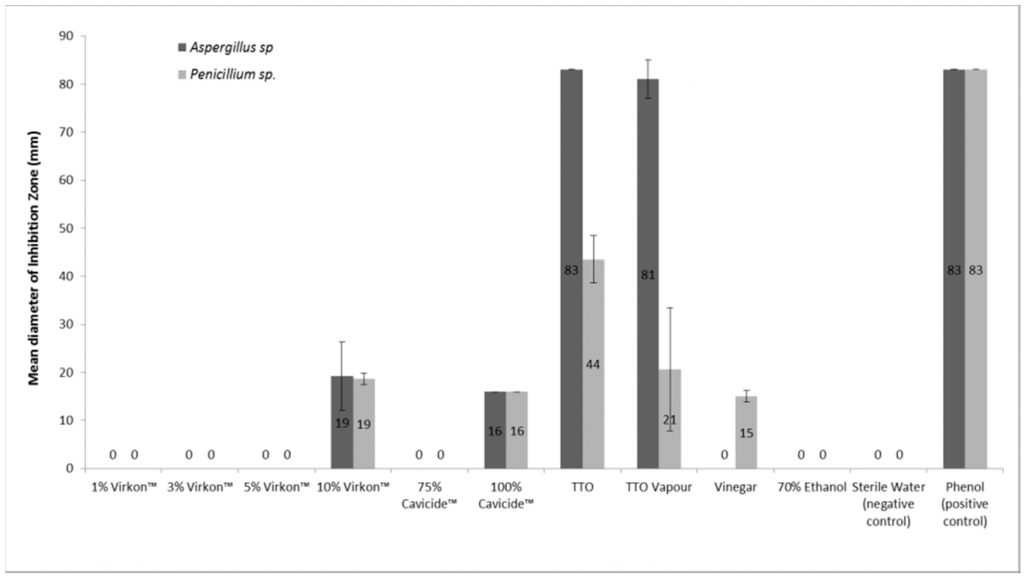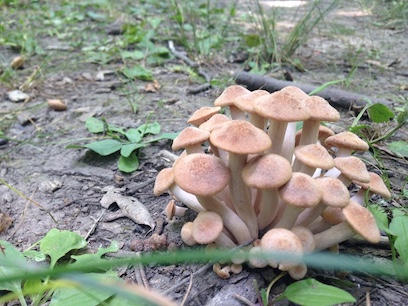A really interesting study from Rogawansamy et al explores the effectiveness of various anti-fungals on two common household fungal contaminants. They used a classic inhibitory disk assay, commonly used to test antibiotic efficacy and resistance. They tested Cavicide, Virkon, 70% ethanol, vinegar, and tea tree oil and found that the tea tree oil was most effective on both species of fungi, while Cavicide and Virkon were only slightly less effective than that. Vinegar (which I personally use often for cleaning) only worked on one species, while the ethanol (which I also use) didn’t work on either. Apparently, tea tree oil has become a popular remedy for fungal contamination recently, so it’s cool to see some data showing if this trend is worth it!

